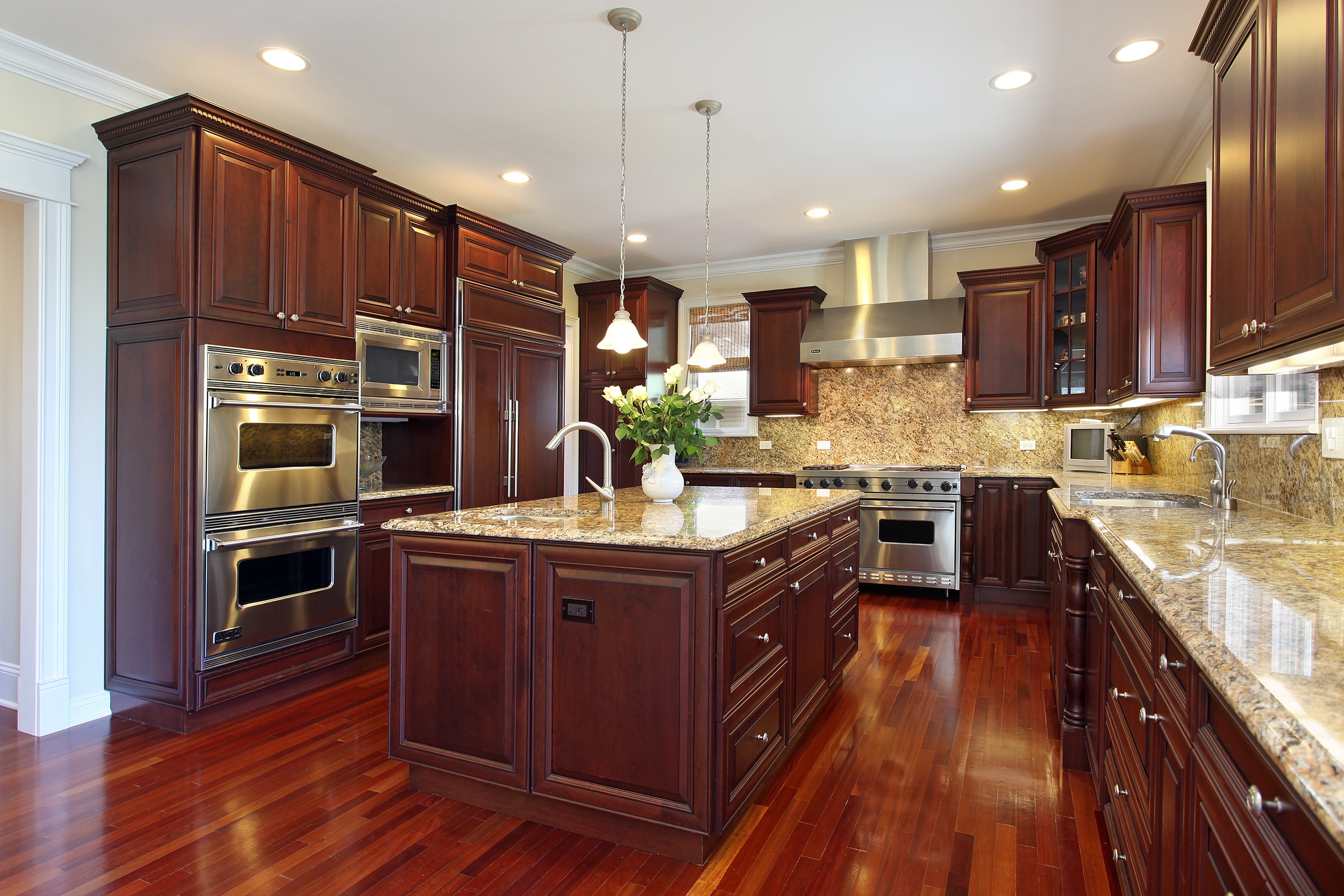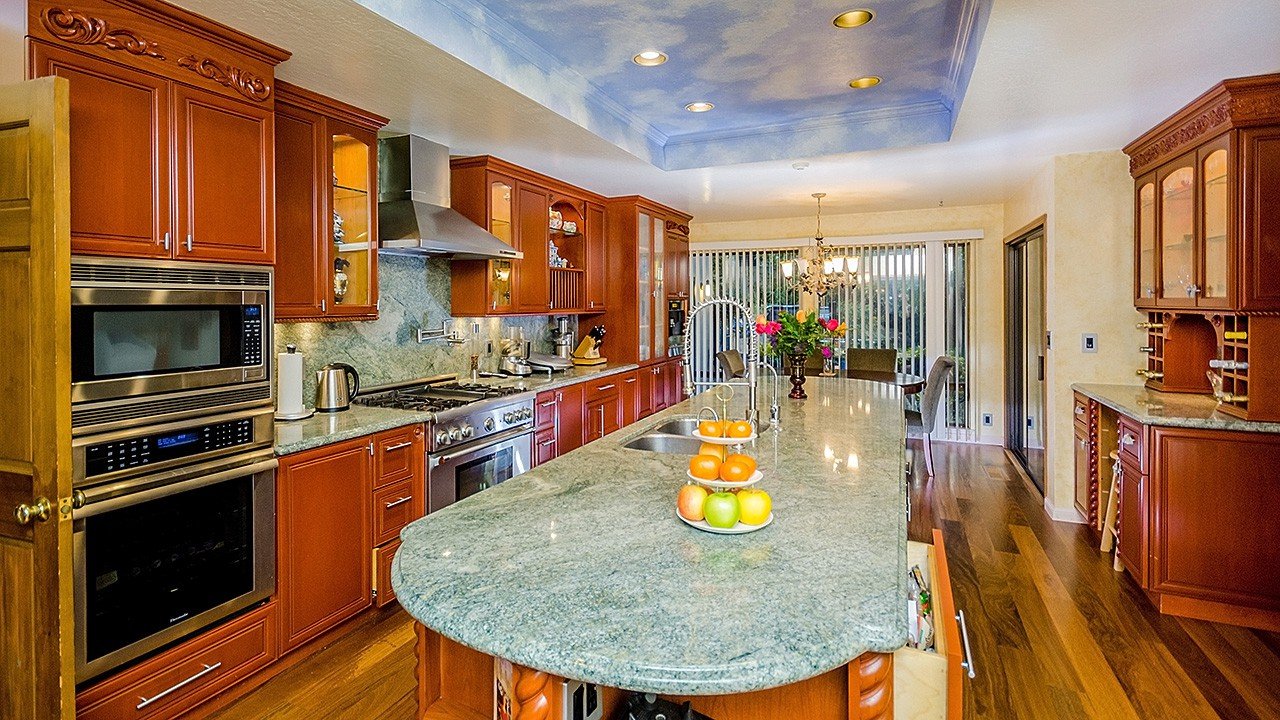CAESARSTONE VS SILESTONE: WHICH ONE TO CHOOSE?

If you’re looking for an easy-to-maintain, beautiful, and durable countertop material, look no further than quartz. Caesarstone and Silestone are two of the most notable quartz brands on the market, creating equally stunning kitchen countertops. And you can find both at Granite Selection. But, how do you decide which is best for you and your home? First, you have to understand the difference between the two.
Caesarstone
Caesarstone claims to be the original creator of engineered natural stone countertops. Their stones are marketed based on their heat- and stain-resistant features. They offer a wide number of edging options and have several textures and finish options to give the stone different effects. Caesarstone countertops were among the first natural quartz countertops produced in the world, and the company has been in business since 1987. Their high-quality engineered quartz countertops are made of 93% quartz and 7% polyresin, making them extremely long-lasting and easy to maintain. The counter surface is nonporous and does not need to be sealed. They come in a wide range of styles that mimic natural stone, such as granite and marble, or more unique patterns, like tiger’s eye. Fabrication work is made in Israel and the United States.
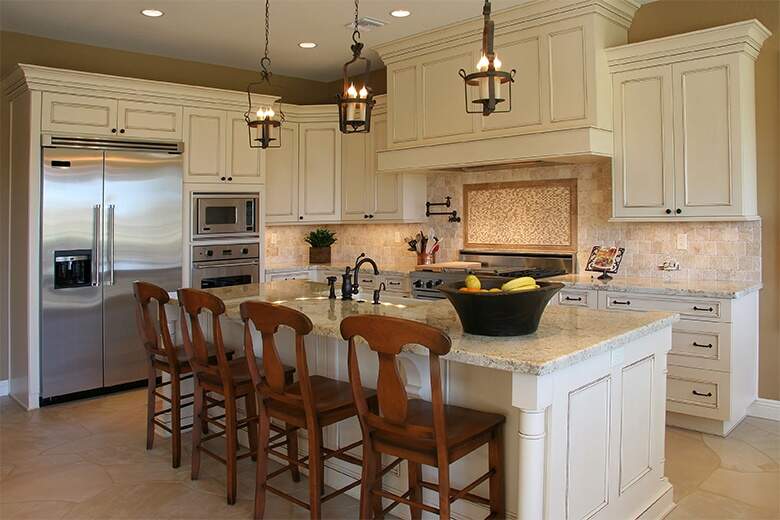
Silestone
Silestone focuses on its international reputation as an engineered stone provider. Silestone is known for offering a wider variety of color options to customers. Silestone quartz countertops are recognized for their durability, stain-resistant, and heat-protective features. Founded in Spain in the 1990s, Silestone countertops have made their way to kitchens around the world. Their engineered stone is constituted of 94% of crushed quartz and 6% of diverse resins and adhesives that make those kitchen countertops extremely resistant to stains, whether it is juice, wine, coffee, or other liquids. Their higher quartz content is proof of quality over other lesser-known brands. Silestone countertops are used in residential settings, but their high-quality quartz composition is also prized in commercial settings like building facades.
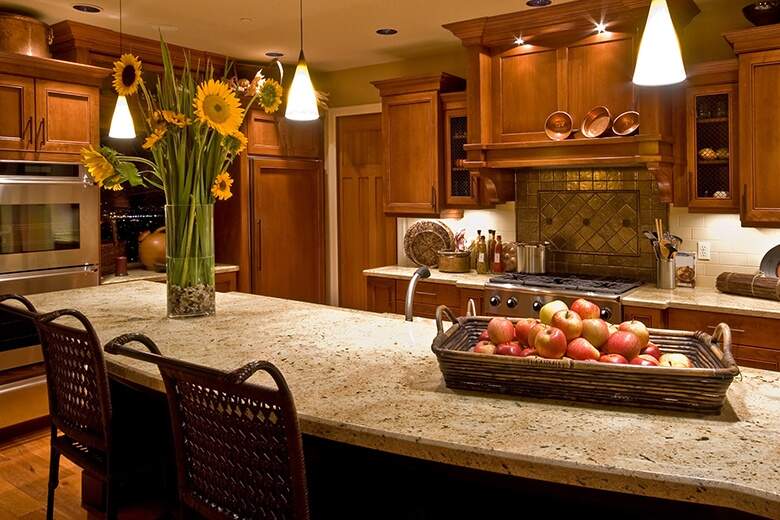
SILESTONE VS CAESARSTONE: THINGS TO CONSIDER
Color selection
In general, Silestone has a broader variety of colors to pick from, which can either be a positive or a negative depending on the consumer. Caesarstone quartz countertops are available in 50 different colors and three different finishes (polished, concrete, and rough). At the same time, you can pick a Silestone engineered quartz countertop among 53 different hues and three different finishes (polished, suede, and volcano). However, Caesarstone offers more diversity in terms of finishing, edge profiling, and edging selection. Some customers pick a quartz countertop that mimics the color of natural stone, like granite. Here are a couple of popular granite-like colors.
ETERNAL CALCATTA GOLD SILESTONE COUNTERTOP
Featuring a classic, smooth white background and elegant grey veins, the Eternal Calcatta Gold Silestone is the perfect countertop for bathrooms and kitchens alike. Its neutral tint allows it to match various designs, from bolder to more minimalist features.
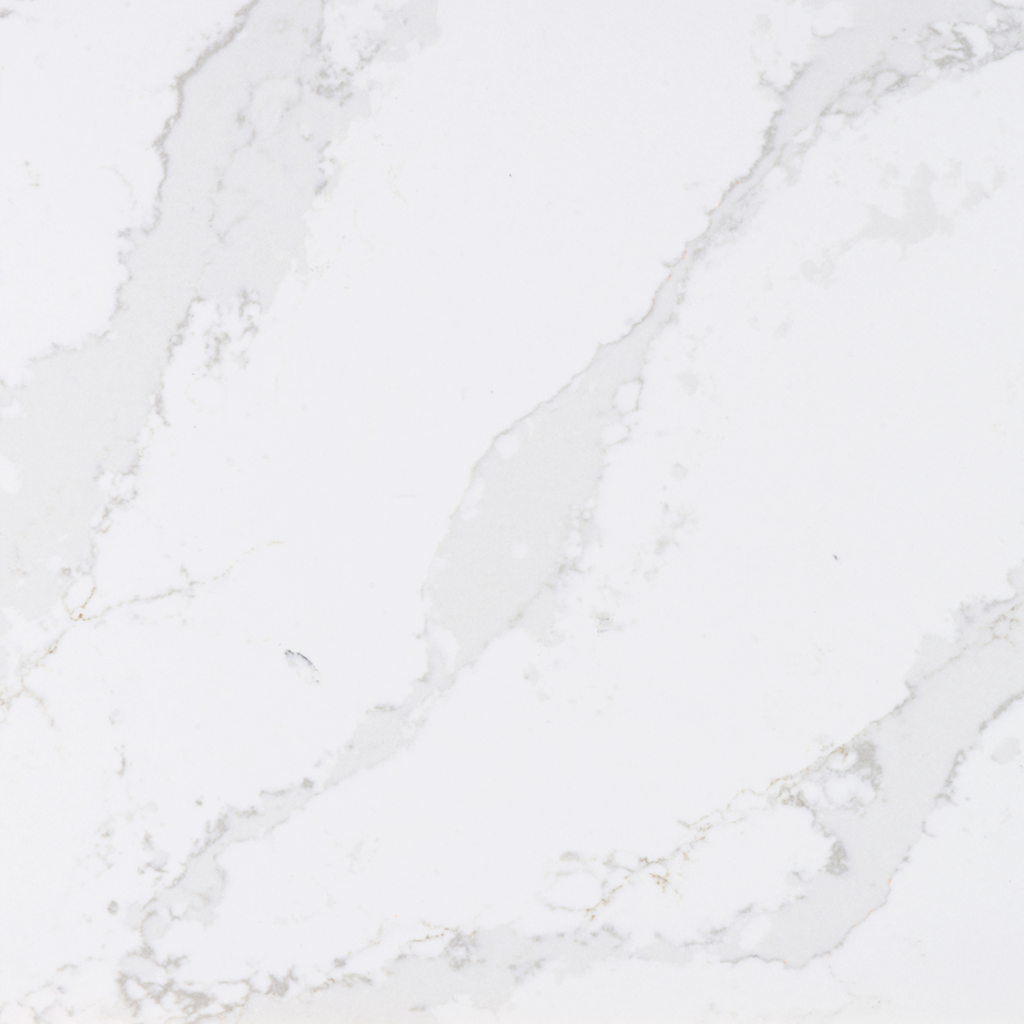
SILESTONE ETHEREAL GLOW SILESTONE COUNTERTOP
Some engineered stones, such as the Ethereal Glow Silestone countertops, offer the look of marble available on a larger slab to match any kitchen or bathroom surface. It features a combination of white, grey, and gold hues.
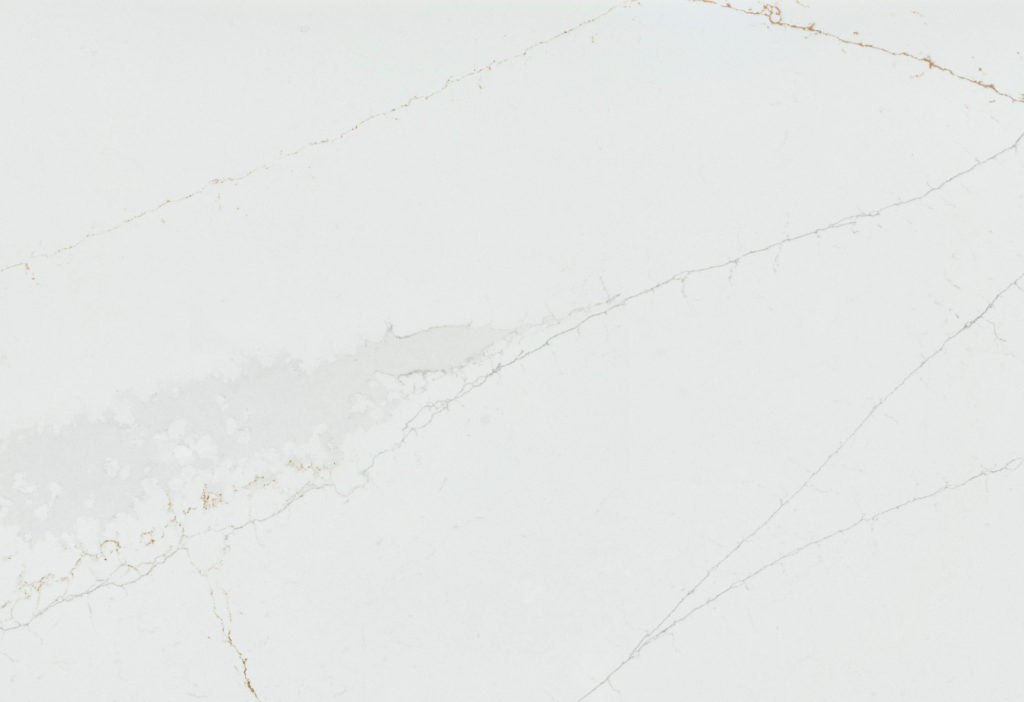
ORGANIC WHITE CAESARSTONE QUARTZ COUNTERTOP
The crisp white and subtle grey undertones of these Organic White Caesarstone counters are warm and inviting. It is perfect for those who appreciate the easy maintenance of quartz countertops coupled with the elegance of a unified look.

FRESH CONCRETE CAESARSTONE QUARTZ COUNTERTOP
For a more rugged and organic take on quartz countertops, try the Fresh Concrete Caesarstone countertops. They feature a delicate white concrete texture with subtle warm gray undertones in a matte finish. Although this classy finish requires more maintenance since it shows stains, it is an unexpected and elegant choice.
Composition of quartz
When choosing quartz countertops, one of the main things to take into account is the composition of the engineered quartz. Silestone quartz countertops are manufactured with at least 90% quartz. On the other hand, Caesarstone countertops have at least 93% quartz content. This slight variation does not make much of a difference in the look, feel, or durability of the stone. Both Silestone and Caesarstone engineered stone countertops feature high-quality materials that stand out from lesser-known brands, many of which have a lower proportion of quartz to resin. Brands whose manufacturing process involves a lower amount of quartz may be more affordable than recognized manufacturers such as Caesarstone and Silestone, but it also affects the durability of your countertops. However, it is not a determining factor when comparing Silestone vs Caesarstone.
SLAB SIZES
One of the major advantages of engineered quartz countertops is that, unlike granite and other natural stones, the size of your countertop can be adjusted to the size of your counters. Larger slabs mean you will have fewer visible seams, providing a more uniform look. Silestone, Caesarstone, and other manufacturers offer original and jumbo slabs for oversized areas. Here are the different options for slab sizes and thickness for Silestone and Caesarstone:
- Silestone Slab Sizes: 306cm x 140cm or Jumbo 325cm x 159cm;
- Silestone Thickness Options (for both Original and Jumbo Slabs):
- 1.3 cm,
- 2 cm,
- 3 cm.
- Silestone Thickness Options (for both Original and Jumbo Slabs):
- Caesarstone Slab Sizes: 306cm x 144cm or Jumbo (Grande) 334cm x 164cm;
- Thickness Options for Original Slabs:
- 1.3 cm,
- 2 cm,
- 3 cm;
- Thickness Options for Jumbo Slabs:
- 2 cm,
- 3 cm.
- Thickness Options for Original Slabs:
Durability
A countertop made of quartz is conceived to be resistant to scratches resulting from everyday use. According to the Mohs Hardness Scale, Silestone has a Mohs hardness rating of 10 compared to Caesarstone with a rating of 7. It also has excellent resistance against stains since it is a non-porous material and, unlike stones like granite, it does not need to be sealed regularly. However, it has low heat resistance, and putting hot pots down on the surface or any other brutal changes in temperature could leave some permanent markings. Therefore, to ensure that your countertop stays as beautiful as the day it was installed, always use hot pads to prevent thermal shock.
WARRANTIES
Since quartz is extremely resistant and easy to maintain, it should come as no surprise that both Silestone and Caesarstone offer excellent warranties on their products. Silestone offers a 10 to 15-year warranty depending on the engineered stone provider you bought the slabs from and the stone purchased. Comparatively, Caesarstone offers a limited lifetime warranty on all of its stones. This lifetime warranty does not transfer to new buyers if they purchase the house after you installed the countertops, but they will benefit from a 10-year limited warranty.
While most people never have to address any type of warranty issues because quartz counters pretty much maintain themselves as long as you keep in mind their relatively low heat resistance, it’s unquestionably nice to know it’s there if you need it!
PRICE
Quartz offers a low-maintenance and long-lasting option for countertops and can offer a good value since it will remain pristine for decades with proper care, but it remains a luxury material, and installing it can be a significant budget depending on the size of your kitchen or bathroom. On average, Caesarstone runs at $60 to $80 per square foot, while Silestone ranges from $50 to $70 per square foot.
This small variation in pricing is attributed to Caesarstone being imported as it is manufactured in Europe and the cost to ship it is included in the price. The range given above is only a general statement as prices can vary significantly from one dealer to another as well as the type of stone and finishes you choose.

Which side are you gonna take in the Caesarstone vs Silestone battle after you’ve seen this amazing Silestone countertop?
SILESTONE VS CAESARSTONE: THE BOTTOM LINE
You really can’t go wrong with quartz brands like Caesarstone and Silestone. If you’re more price-driven, we suggest you go with Silestone, but if you’re looking for a countertop with bold colors and textures, Caesarstone is your best bet. Check out our selection of quartz countertops for sale in Chicago and try our online instant quote tool to compare the prices of specific countertops we carry.
Don’t hesitate to contact us for additional information.
We have 300+ quartz countertop patterns to meet everyone’s needs!
Give us a call and we’ll provide you with our complete assistance.


